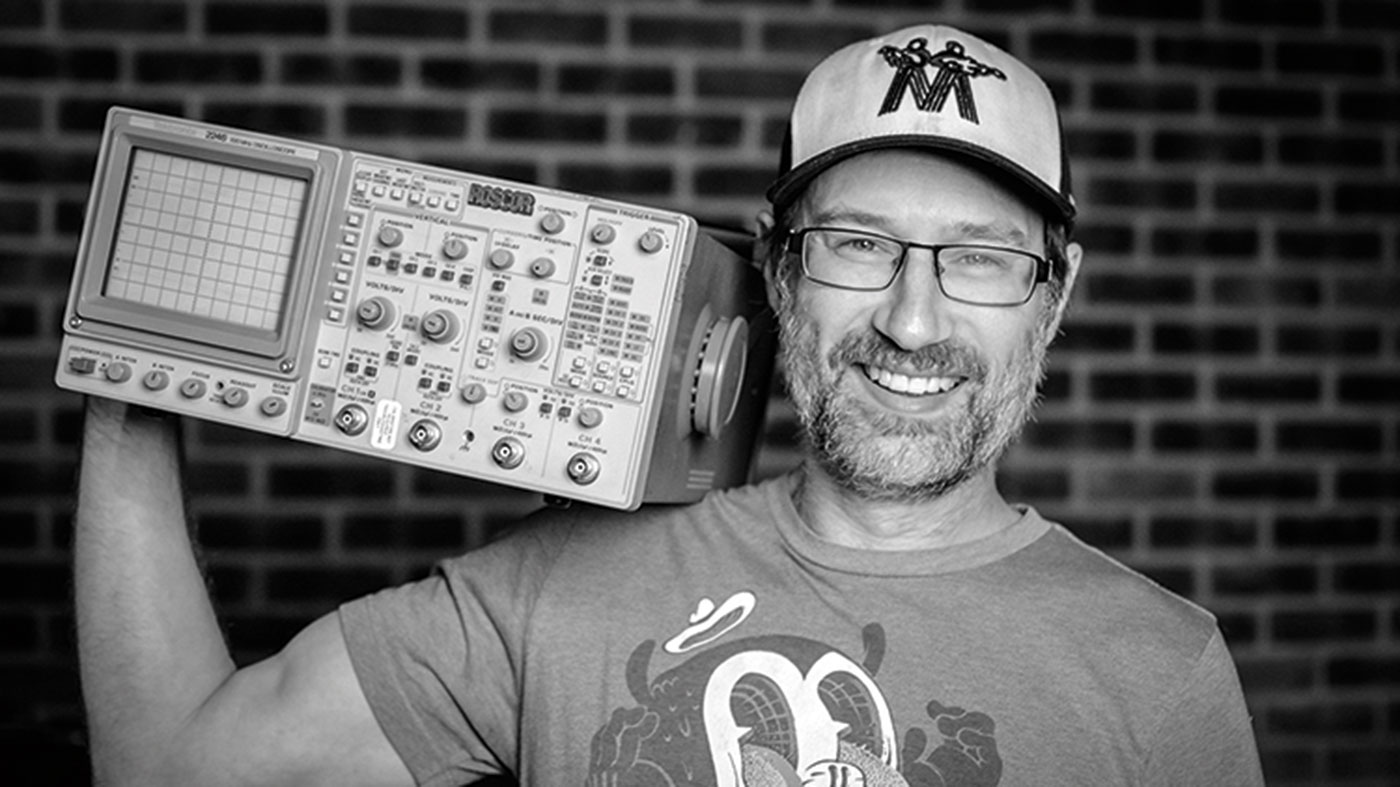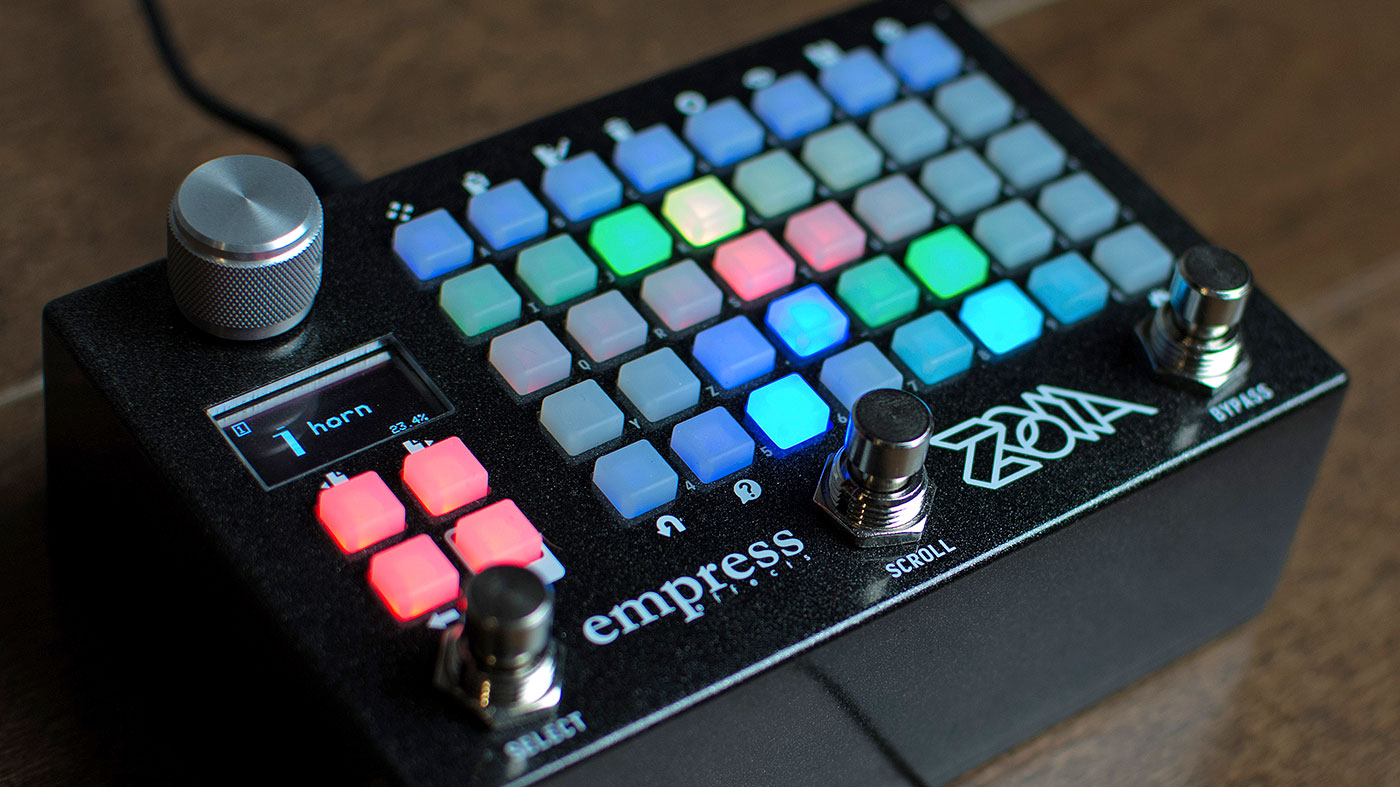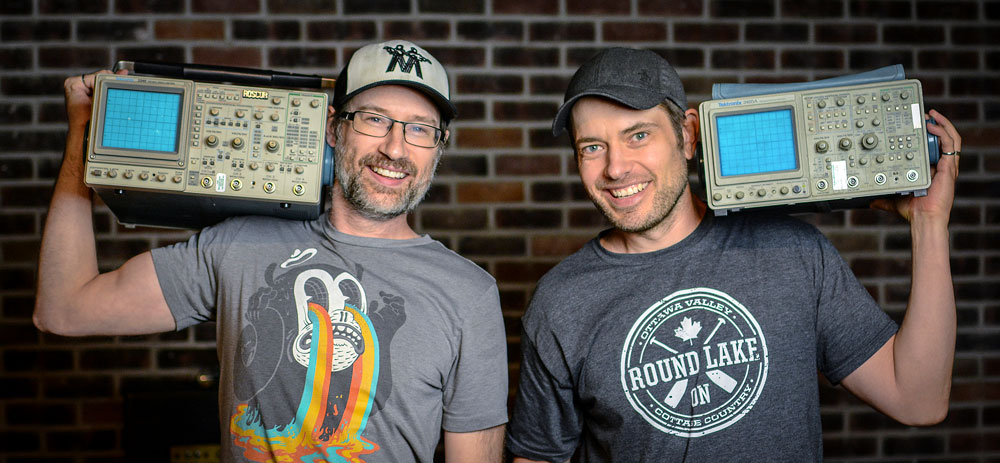
Want all the hottest music and gear news, reviews, deals, features and more, direct to your inbox? Sign up here.
You are now subscribed
Your newsletter sign-up was successful
Founder of Canada’s Empress Effects, Steve Bragg reveals how he’s taken the humble stomp-box to the next level…
1. What was the first pedal you built and how did the design come about?
“The Tremolo was the first Empress pedal. It started when a friend asked if I could make him a tremolo pedal - like a Boss Tremolo - and I kept on adding features to it. A year later I said, “I’ve done the pedal!” and he said, “I’ve kind of forgotten about that; I bought a Boss pedal a while ago. [laughs]”
2. What do you think makes Empress Effects unique?
Myself and [sound designer] Jason Fee have been working on our new pedal - the Zoia - for about three years now
“We have two separate categories of effects. One of them is the more analogue pedals; the ones that stand out are the Compressor, the ParaEq and the Heavy. But, I guess we’re probably better known for our Echosystem and Reverb, which have as many modes and features as we can fit in. We keep updating the firmware for it - you just go onto our website and download it. We’re always adding new modes and features. We have other products, like the Tape Delay and the Nebulus, but we’re not really known for those.”
3. What’s your best-selling pedal and why do you think that is?
“I’d definitely say the Echosystem is, by far. We spent a ton of time on it. I guess all the time that we spent on the Reverb was time we spent on the Echosystem as well, because they’re based on the same platforms. I think we’re just about breaking even now on the amount of R&D that went into it.
Want all the hottest music and gear news, reviews, deals, features and more, direct to your inbox? Sign up here.
“The Reverb was a really good pedal to start off with because it’s generally the hardest effect, or the most computationally intensive effect. We started with that because we thought if we could do a reverb then we could do pretty much anything else.”
4. Which notable bands/players have used Empress Effects pedals?
“Just recently I got a phone call from Eric Johnson. He’s a great guy. He was asking about the returns policy because he’s very particular. He bought the ParaEq and he hasn’t sent the pedal back yet, so I’m hoping he’s good with it!”
5. Is there anything new on the horizon with Empress Effects?
“Yes! Myself and [sound designer] Jason Fee have been working on our new pedal - the Zoia [below] - for about three years now. It’s as if you took a computer system like Pure Data and then merged it with a piece of hardware like a monome, which is basically a grid of buttons and LEDs.
“The idea behind it is that it gives you all these tiny modules and you patch them together to create whatever kind of effect you want. It’s basically a modular synthesizer, but in pedal form. If you wanted to keep it simple you could just pop down a delay, a tremolo or a chorus, and just use it like a virtual pedalboard, but we want to get it to the point where you can use it to build your own custom looper and replace a DAW with it.”

6. What’s your best tone tip?
“I have no tone tips whatsoever!”
7. What’s your favourite vintage pedal?
“I’m not sure if this is ‘vintage’ strictly speaking, but there’s a company that’s still around called Mid-Fi Electronics. Doug Tuttle is the name of the guy who makes these effects, and he’s such an amazing musician too. He has this awesome pedal called the Glitch Computer. It’s basically a bit crusher and it tracks as well. When it first came out it was very original.”
8. If you had a three-pedal desert island pedalboard, what would be on it and why?
Running unbalanced audio kind of sucks because there’s always noise issues
“We started off with digitally controlled analogue effects like the Tremolo and the Phaser; ideally I’d have effects that are all Midibox compatible - like Joel [Korte’s] Chase Bliss Audio stuff - and then have them all controlled by the Zoia. Okay, this a bit of an advertisement for Chase Bliss, but I’d go a Thermae, a Brothers and a Zoia to control them.”
9. What are your favourite effects pedal moments to be heard on record?
“In terms of guitar effects, anything Radiohead-related. I love the weird sounds on OK Computer. I think they used the Mutronics Mutator, which is a VCF [voltage controlled filter]. I’ve always wanted to get my hands on one, but I haven’t been able to yet.”
10. What problems have effects designers yet to crack?
“I don’t know if this will ever be fixed because it’s so entrenched, but running unbalanced audio kind of sucks because there’s always noise issues. It shouldn’t be the case in 2018, but it’s probably going to stay that way.”

Guitarist is the longest established UK guitar magazine, offering gear reviews, artist interviews, techniques lessons and loads more, in print, on tablet and on smartphones
Digital: http://bit.ly/GuitaristiOS
If you love guitars, you'll love Guitarist. Find us in print, on Newsstand for iPad, iPhone and other digital readers


